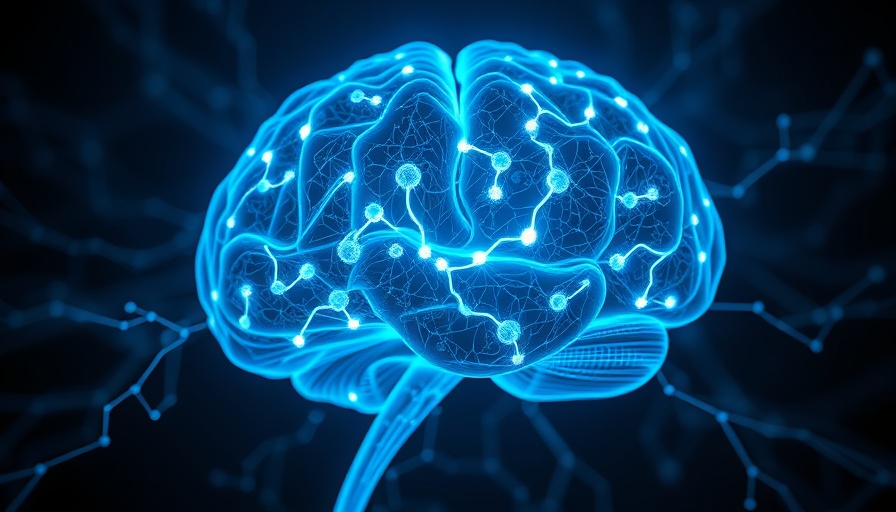
Breakthrough Discovery in Brain Health
Recent research led by a team at Rutgers University has identified a small brain protein called cypin, which plays a vital role in enhancing communication between neurons. This protein is crucial for maintaining connections that support learning and memory capabilities. As neurodegenerative diseases like Alzheimer's and Parkinson's continue to challenge health care providers, findings from this study could pave the way for new treatment strategies.
The Role of Cypin
Cypin operates at the synapse—the tiny gap between neurons where signals are exchanged. By marking specific proteins at these sites, cypin ensures that proteins are properly positioned, fostering effective communication. Professor Bonnie Firestein, who has dedicated over two decades to studying this protein, emphasizes that improving synaptic connections could enhance memory and cognitive functions, pointing to possible therapeutic interventions focused on cypin.
Implications for Treatment
Beyond memory enhancement, the implications of this discovery extend to traumatic brain injuries and neurodegenerative diseases. The team found that cypin interacts with the proteasome, a molecular complex responsible for degrading unnecessary proteins. By slowing down this breakdown, cypin leads to a beneficial accumulation of proteins necessary for neuron communication. This knowledge could inform targeted therapies that strengthen neural connections, potentially improving the lives of individuals affected by brain disorders.
Connecting Research to Everyday Life
Understanding proteins like cypin can reshape how we think about brain health at any age. For families affected by Alzheimer's or Parkinson's, insights from this research may offer hope. By focusing on maintaining healthy neuronal communications, we can better advocate for proactive approaches to brain health in our loved ones.
A New Era in Cognitive Care
This groundbreaking research marks a significant step toward unlocking the mysteries of brain function and memory. As scientists delve deeper into the complexities of synaptic health, there is potential for creating innovative treatments that not only enhance memory but could also fundamentally alter the landscape of neurodegenerative disease management.
 Add Row
Add Row  Add
Add 




Write A Comment